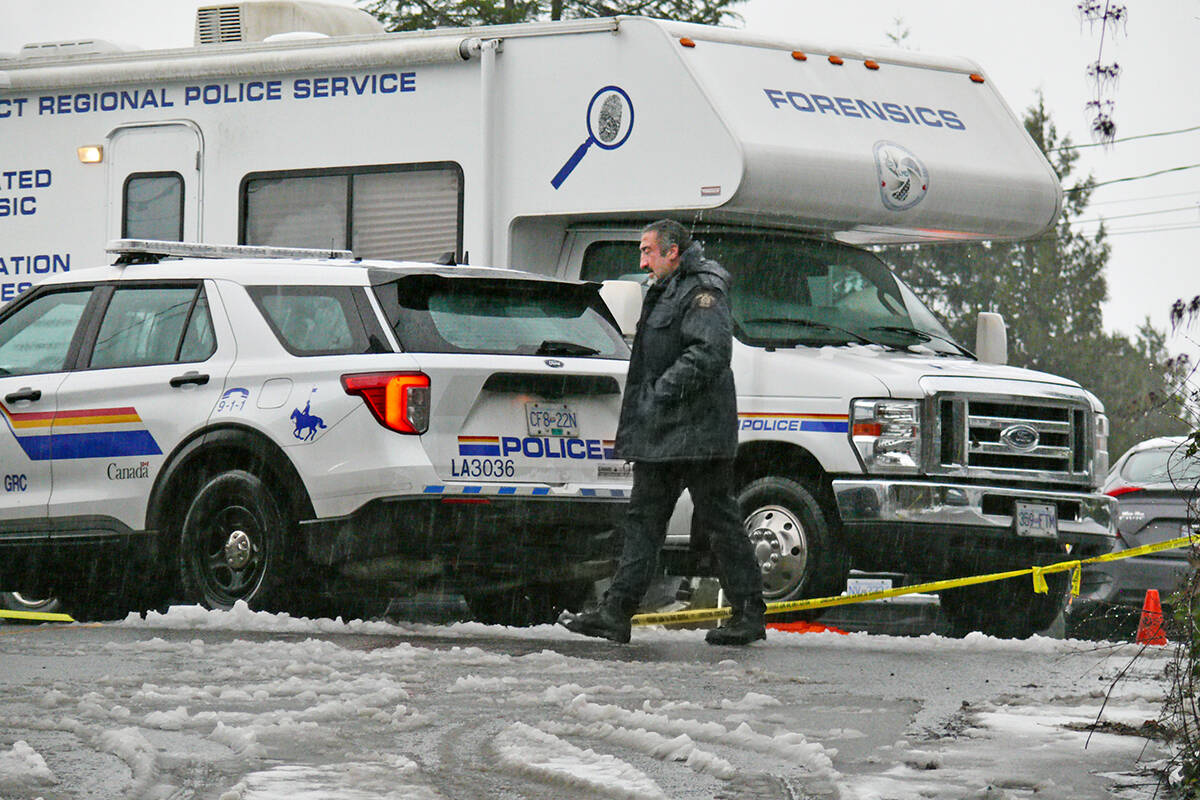WARNING: This story contains disturbing details
A B.C. Supreme Court judge heard Wednesday how police investigators stripped a Langley home of plumbing, wall molding, and flooring as they searched for possible evidence in the homicide of Naomi Onotera.
Obnes Regis is on trial for manslaughter and indignity to human remains in the death of Onotera, his wife.
Onotera went missing at the end of August, 2021, and by mid-September police were looking into Regis as a suspect.
The trial began Monday with a voluminous listing of agreed facts and evidence that was presented during a pair of lengthy pre-trial voir dire hearings last fall and earlier this spring.
The evidence already before Justice Martha Devlin, in a judge-only trial with no jury, includes a videotaped interrogation of Regis by the RCMP, video and audio taken by undercover officers, video surveillance, and forensic evidence, including pieces of human tissue and DNA.
On Wednesday, Sgt. Heather Burwell continued testimony begun on Tuesday, talking about the search for evidence in Onotera’s Langley City home between December 17 and 19, 2021.
Burwell noted that by mid-December, when police came with a search warrant, the home was in a messy, unkempt state, with food containers and packages everywhere.
There was still purple dye on various surfaces from a previous RCMP search months earlier – the dye was residue from testing for possible blood.
READ MORE: DNA, undercover evidence detailed as Langley manslaughter trial begins
During the three-day December search, officers dismantled significant parts of the home in a search for evidence.
An RCMP constable with a background in plumbing dismantled sinks, toilets, pipes, and showers. Parts of the sinks, drains, and toilets were swabbed, or were taken off the property as possible evidence.
The floor underneath the base of the toilets was swabbed, Burwell testified.
Baseboards were removed from the walls of the bathroom and kitchen, and the baseboards were swabbed for forensic evidence.
The linoleum floor in one bathroom was sliced off around the edges of the room in one-foot-wide strips by Burwell, examined, and removed.
A snake camera was inserted into the household drains, and a piece of unidentified material found 46-feet down one drain was retried for testing.
In the kitchen nook, a baseboard heater was dismantled and the area behind it was swabbed for evidence.
Items such as toilet plungers, a curtain, a mop head, and a pair of pruning shears found in a laundry room sink were seized.
Burwell’s testimony on Tuesday did not spend much time on what, if anything, was discovered from all of the items taken from the home. The Crown has presented extensive exhibits to the judge.
The court has already heard about a mitre saw Burwell examined which had human remains. DNA samples taken by officers were matched to Onotera.
Defence lawyer Gloria Ng began cross-examining Burwell on Wednesday morning. She asked the officer about the presumptive tests that are used to first determine whether an object might have blood residue on it.
Ng asked in particular about false positives for those tests.
Burwell acknowledged that there are possible false positives for several of the commonly used tests, including bleach, rust, tomatoes, potatoes, and other items.
Ng also asked about perspiration, chlorine, and a few other items, but Burwell testified she was not aware of those causing false positives. She noted that presumptive tests are first tests, to see if an area is suitable for further analysis.
Ng also asked about a swab of a red stain from the home’s basement suite.
The cross examination was expected to wrap up on Wednesday afternoon.
When Burwell’s testimony is concluded, the Crown will have largely wrapped up its case, as much of it relies on the evidence admitted during the earlier voir dire hearings.
The trial was expected to take a day off on Thursday, with the defence beginning to present their case on Friday, May 31.

